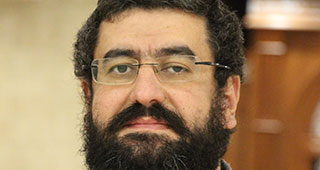We have learned that one of the differences between the minor fasts and Tisha Be-Av is that pregnant and nursing women are exempt from the minor fasts and obligated in Tisha Be-Av (above 7:8). The reason for this is that only sick people are exempt from fasting on Tisha Be-Av, while pregnant and nursing women – despite the aches and pains that they experience – are not considered sick (sa 554:5). If, however, they experience extraordinary weakness, they are considered sick and are exempt from fasting on Tisha Be-Av.
For example, a pregnant woman who suffers greatly from vomiting or dizziness is considered sick and does not need to fast. Similarly, a pregnant woman who is extremely anemic – due to a low blood count, for example (generally less than 10 grams of hemoglobin per deciliter of whole blood; it is best to consult a medical professional about such matters) – is exempt from fasting. It goes without saying that one should not fast if there is a concern that doing so could cause a miscarriage. A woman who is not certain whether she is considered sick should begin fasting, but if she starts feeling very weak, then she is certainly considered sick and should eat and drink.5
As we learned, a nursing woman must fast on Tisha Be-Av. Even though it is harder for her to fast because breastfeeding can deplete one’s fluids, this does not mean that she is considered sick. The baby does not suffer from the fast either. If the mother’s milk supply does not decrease when she fasts, the baby will certainly not feel any difference, and even if the milk supply decreases when she fasts, she can supplement with infant formula, sweetened water or infant cereal so that the baby does not suffer from the fast.6 The best advice for most women whose milk supply decreases is to skip two feedings in alternating fashion. That is, a woman who nurses every three hours should breastfeed her baby at 10 am, give him something else at 1 pm, breastfeed again at 4 pm, and give him a something else again at 7 pm. This way, she will not suffer too much from fasting and her milk supply will not decrease. If a nursing woman feels so anemic that her status changes from that of a nursing woman to that of a sick person, she may eat and drink.

The Mourning Period of Sefirah
What Are the Guidelines for Aveilus Observed During the Sefirah Weeks?
Rabbi Yirmiyohu Kaganoff

The Bracha on Blossoming Trees
Rabbi Yirmiyohu Kaganoff | Adar II 27 5782

Aaron, Moses, and the High Priesthood
Parashat Shmini
Rabbi Avraham Yitzchak HaLevi Kilav






